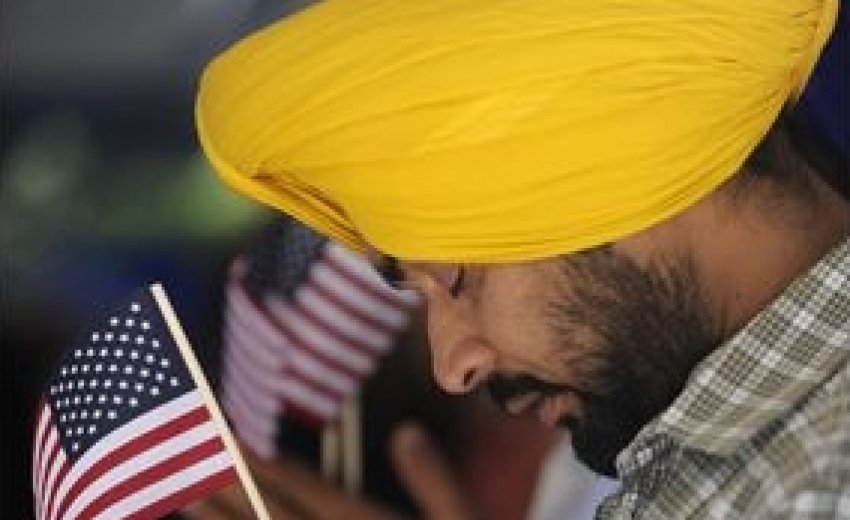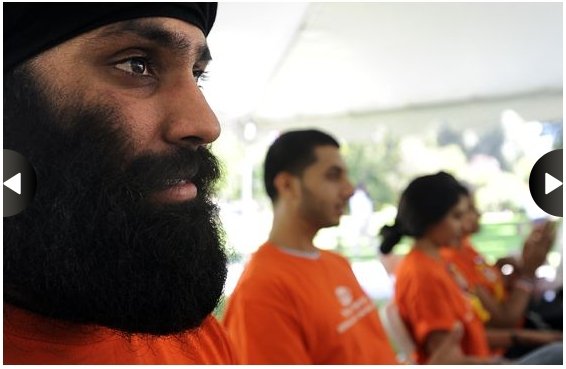 |
|
Jaskarn Johal of Yuba City listens during a peace and unity rally put on by the North American Punjabi Association on Saturday, Sept. 8, 2012, at the north steps of the state Capitol in Sacramento. David Bitton/Appeal-Democrat |
September 09, 2012: Faced with discrimination as a child, Jaskarn Johal turned to his only known resort — violence — as he fought nearly every day against people who mocked or teased him because of his East Indian heritage.
Today, the Yuba City resident takes another approach by encouraging tolerance through education. Correcting ignorance, he said, is the only way to change the misconceptions and misunderstandings about his culture and his faith.
"Now, I think of it as, What can I do to change the world's mind?" he said.
Johal was one of about 600 people who gathered at the north steps of the state Capitol in Sacramento on Saturday to promote peace and unity. The event was organized by the North American Punjabi Association in the wake of the Sikh temple shooting in Wisconsin last month and to celebrate the passage of two bills related to tolerance.
Click here to see a slideshow of the rally.
The rally began with the singing of the national anthem, a prayer in Punjabi and then a moment of silence for the Wisconsin temple victims. Many people, some of whom came from as far as Oregon, Washington and Los Angeles, took the podium to speak about why they came to the United States, the senseless tragedy of the violence and how to ensure it never happens again.
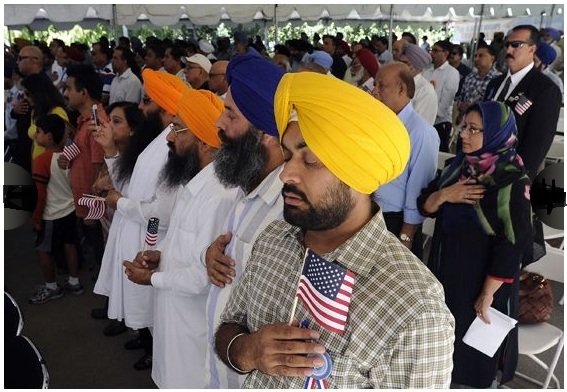 |
| Sukhwinder Sanghera of Sacramento and about 600 others stand during the singing of the national anthem at a peace and unity rally put on by the North American Punjabi Association on Saturday at the north steps of the Capitol in Sacramento. The event was held in the wake of the Sikh temple shooting in Wisconsin and to celebrate the passage of two state bills related to tolerance. David Bitton/Appeal-Democrat |
The original goal of the rally was to pay tribute to the lives lost in the Wisconsin, but a greater message that evolved was to celebrate religious coexistence, said Yuba City resident Karm Bains.
"The damage is already done," Bains said. "It's sad that it took those people's lives for us to come together. But we needed something to show our solidarity and unity. It doesn't matter if you are Democrat or Republican, black or white, man or woman — we are one. We look to create a better good for all mankind."
During the rally, Gov. Jerry Brown signed two bills into law. Senate Bill 1540 requires the inclusion of Sikh American history in the California school curriculum, and Assembly Bill 1964 mandates that religious dress and grooming practices as a belief or observance are covered by protections against religious discrimination.
"This is a historic day for Sikhs," said Yuba City resident Jasbir Kang, who was wearing a collared shirt with an American flag and constitution design. "Both are great milestones, as all Sikh Americans are part of the American family. We should be judged not on what we look like or our religion but our values, because they are American values."
For Yuba City resident Tej Maan, the signing of the bills affirms his faith the United States is a great nation, he said, as it continues to improve laws that educate about and protect everyone.
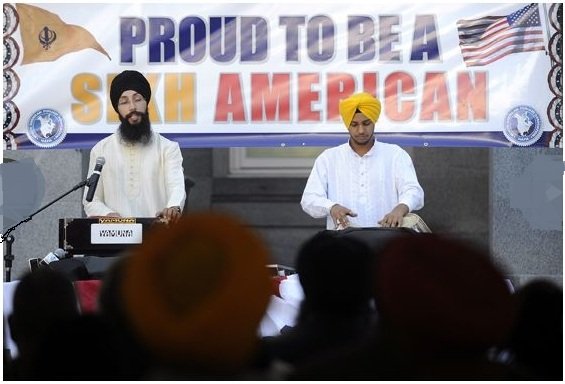 |
| About 600 people listen to live music during a peace and unity rally put on by the North American Punjabi Association on Saturday, Sept. 8, 2012, at the north steps of the state Capitol in Sacramento. David Bitton/Appeal-Democrat |
"We are expanding the definition of what an American citizen is," he said.
Johal said one of his primary reasons for attending was in support of the bills, which should help prevent another tragedy like the Wisconsin temple shooting. He knows such ignorance is present even in the Yuba-Sutter area, which has the second-highest greatest concentration of Sikhs in the United States.
Sometimes he witnesses the lack of understanding in the curiosity of a child who spots him in a store and asks "What's that thing on his head?" and other times, Johal said, it comes as hatred, such as when he was driving home Friday night and a man pulled up next to him and said, "Die, bin Laden."
He has been working with a group of volunteers known as Seva to change the perception and to associate the East Indian image with something positive. Three times a month, they cook food in Yuba City or Sacramento and distribute it to the hungry in Sacramento and San Francisco.
"We are trying to show the world by our actions, that you see a turban and a beard, that's not Osama bin Laden. That's a guy who feeds the homeless," he said.
Born in India, Yuba City resident Daman Bhangu came to the United States on Fourth of July 2001, never thinking he would face hatred or discrimination in his new, welcoming country. He's since endured many instances of it, some he writes off as ignorant and others that left emotional scars.
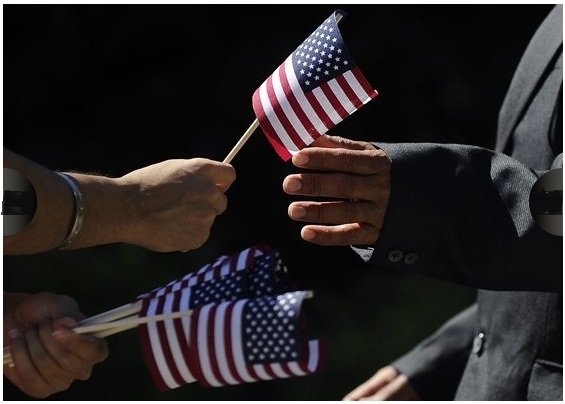 |
| American flags are passed out to approximately 600 people during a peace and unity rally put on by the North American Punjabi Association on Saturday, Sept. 8, 2012, at the north steps of the state Capitol in Sacramento. David Bitton/Appeal-Democrat |
He felt a similar pain Aug. 5, when he heard about the temple shootings.
"It's hurtful but at the same time, when the anger and the pain is over, there is a moment of, 'What can I do?'" Bhangu said, as he passed out American flags Saturday. "As an individual I can try to educate. Whether Sikhs, Hispanics, African American, Asian, Pacific Islander, it's all one race — the human race. And no one should think they are superior than others."
CONTACT Ashley Gebb at [email protected] or 749-4783.
Find her on Facebook at /ADagebb or on Twitter at @ADagebb.
